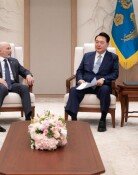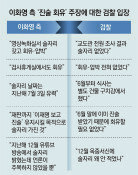PyeongChang Paralympics’ success to guide to a better society
PyeongChang Paralympics’ success to guide to a better society
Posted March. 17, 2018 07:33,
Updated March. 17, 2018 07:34
The 2018 PyeongChang Winter Paralympic Games ends Sunday after 10 days of fierce competition under the theme of passion and coexistence. The PyeongChang Paralympics has set a new record for Winter Paralympics with more than 570 athletes from 49 countries participated in. North Korea sent its athletes for the first time in history, helping to thaw relations between the two Koreas. The 12th Winter Paralympics was a great success as more than 335,000 tickets sold as of Thursday, exceeding the total number sold at the 2010 Vancouver Paralympics (210,000) and at the 2014 Sochi Paralympics (200,000). The PyeongChang Paralympics has been also praised for its excellent facilities easily available to the participating athletes.
One of great successes is a growing interest in sporting events for those with disabilities. South Korean wheelchair curling team enjoyed as much popularity as the women’s curling team “Team Kim,” being called the “Oseong Avengers,” or “Avengers with five different surnames.” South Korean ice sledge hockey team captain Han Min-su, who carried the torch and climbed a slope with his prosthetic leg at the Opening Ceremony of the PyeongChang Winter Paralympics, impressed spectators and viewers around the world. Amy Purdy, a double-amputee dancer who performed at the 2014 Rio Summer Paralympic Opening Ceremony, won silver and bronze in women’s snowboard. The event is meaningful because it encourages athletes to strive to win medals, but more importantly it helps them to restore confidence in themselves while extending such recovered confidence to the rest of the world, making the world a better place to live in.
But not all is satisfactory. South Korean TV networks that have the broadcasting rights dedicated few hours to Paralympics programming. Public broadcaster KBS 1 and 2 channels planned to allocate only 25 hours to coverage of the event. As a host, such poor coverage is a shame, compared to American TV network NBC and Japanese NHK scheduling 94 hours and 62 hours, respectively. None of the three broadcasters aired the competition of Shin Eui-hyun who brought South Korea its first medal in Nordic para ski. After a storm of public petitions to the Presidential Office website and South Korean President Moon Jae-in’s call for wider broadcasting coverage, the broadcasters increased their air time for the sporting event.
Disappointingly, the lack of broadcasting coverage reflects our attitude toward those with disabilities in Korea. The failure to pay much-needed attention to the event hosted in Korea has made us look back on how we treated and cared for the disabled. Still prejudice and bias against the challenged remain in everywhere in our society. Parents who have kids with disabilities are desperately calling on their neighbors to help building a special education school in their community, fighting the public’s indifferent attitude. The Paralympics began with an effort to break down the boundaries between the disabled and the ordinary. Now upon the end of the Winter Paralympics after 17 days of exceptional performance and passionate support, it is time to think about the true meaning of the event. There are guide runners who lead and ski alongside skiers with visual impairments. It is my hope that the successful hosting of the 2018 PyeongChang Winter Olympic and Paralympic Games will lead to a better and open-minded society, acting as a guide runner.







